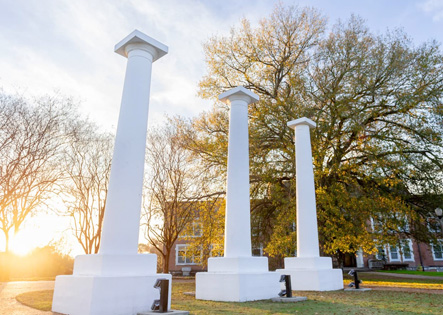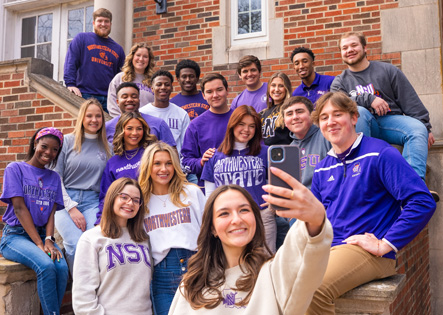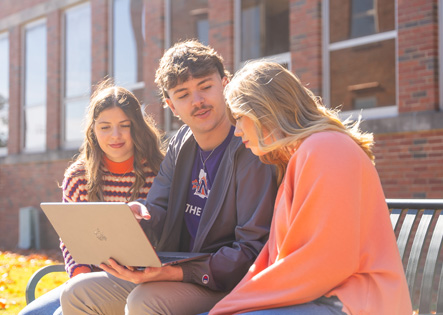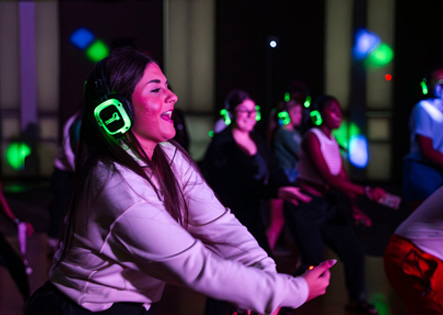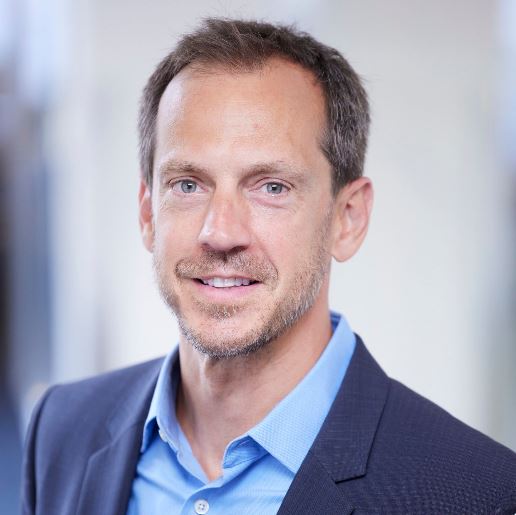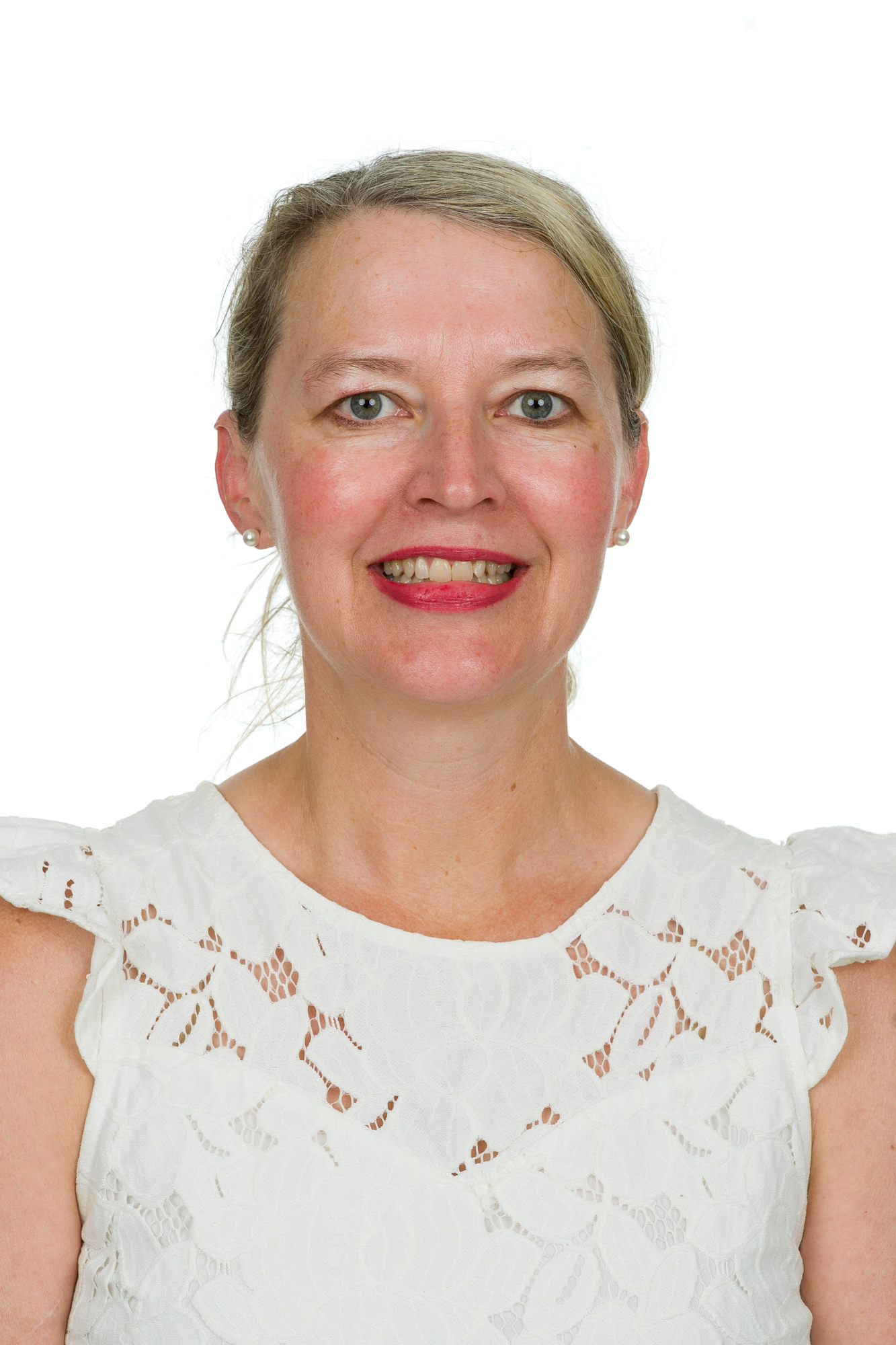NATCHITOCHES – Far from his roots in Converse, Kip Patrick is a world traveler who’s written or been quoted for Wired, National Geographic, CNN and Men’s Journal, among others. After earning a degree in journalism at NSU in 1995, he worked in media and communications in Washington, D.C., New York and Miami, before he and his wife Liz, whom he married in 2008, flew from D.C. to the Philippines for a year-long around-the-world adventure. During their travels, they sought volunteer opportunities along the way which led to the creation of the 1 of 7 initiative, which encourages individuals to spend 1 day per week paying it forward in some way. He and Liz now have two children.
As a student, Patrick was involved in student media, student government and held membership in several honor societies. He has remained engaged with the university over the years by serving three terms on the Alumni Association board, speaking at New Student Convocation and introducing students to the 1 of 7 initiative, which has become an important component of Demon Days welcome week activities.
Earlier this year, Patrick was named a senior consultant with the World Bank, an international development organization working in 189 countries. The World Bank’s role is to reduce poverty by lending money to the governments of its poorer members to improve their economies and to improve the standard of living of their people.
Patrick took time to visit with an old friend at NSU to discuss his work, his experience living abroad with his family and how prioritizing service and volunteering has impacted his life and career. The conversation has been edited and condensed for clarity.
Where are you now based?
I’m currently living and working remotely in Valencia, Spain, though we’re planning to move soon to Grand Junction, Colorado, to be closer to my wife’s family and mine in Sabine Parish. [Kip’s parents, Larry and Paula Patrick both earned master’s degrees at NSU.] Spain’s been incredible and we love Valencia, which is Spain’s third largest city but can often feel more like a coastal colonial town with lots of parks, narrow streets and incredible food. It’s also the birthplace of paella, which reminds me of jambalaya, and the café culture based largely on drinking coffee, wine or beer while sitting outside is hard to beat. Workwise, the move has been a welcome change, particularly for time zones and ease of travel, since my work focuses on helping people in Africa get easier access to quality healthcare and energy. It will be a big change, trading the Mediterranean for the Rockies, but we’re looking forward to being back home.
Can you talk about what the World Bank does and your role there?
The World Bank’s core mission is ending poverty and improving people’s lives and livelihoods. My specific role is with the Global Financing Facility, which helps developing countries improve the health of women and children. It’s fun, fulfilling work. We’re essentially helping countries invest in their most precious resources: their people. I get to tell the stories of programs that are literally saving lives and building healthier futures.
What are your day-to-day tasks?
My role varies a lot, which is one of the things I like most about communications. It’s never boring. One day, I’m interviewing a mother in Nigeria whose baby was saved through one of our programs, the next I’m on a conference call across three continents building out a new program strategy, the next I’m writing a speech for an executive or government official.
How has your NSU education helped?
My NSU education gave me a solid foundation to build my career on. Working as a writer and editor for the NSU newspaper taught me how to write, build a story and meet deadlines. Serving in student government and working on group class projects taught me how to work with people and manage different perspectives, which is essential when you’re coordinating with teams across cultures and time zones. But what probably made the biggest difference were professors who genuinely cared about our success, like my advisor Tommy Whitehead and former journalism professor Steve Horton. They didn’t just teach theory – they mentored us and pushed us to be better storytellers and critical thinkers. I can still clearly remember sitting in Tommy’s office in Kyser Hall my senior year, sending out resume after resume until I finally secured an internship with a major public relations firm in Washington, D.C. I wouldn’t be where I am today without NSU.
Tell me about your family and living abroad.
I’ve always loved to travel, and luckily my wife Liz is the same – we’ve lost track of how many countries we’ve gotten to visit together. Early in our marriage I once suggested we consider having a kid or maybe instead quit our jobs and travel for a year or two. Six months later unemployed in a jungle in Borneo, she told me that was one of the best…and easiest…decisions she’s made. We’ve tried to instill that travel bug in our kids. One of the coolest things about living in Europe has been how close it is to so many other places. One example, the kids were studying ancient Egypt in school, so we booked a cheap flight to Cairo to see the pyramids. Not something we’re able to do every day, but it’s much more doable when you’re so close.
Serving others has always been a priority for you…can you talk about that and how it has impacted your life and career?
Thanks mostly to my awesome parents Larry and Paula and a lot of time at Fellowship Baptist Church in Converse, I was taught that being nice and helping others should be a priority. That’s stuck with me, even after much of my southern drawl has slipped away.
After a stint in the corporate world in New York, Washington, D.C., and Miami, I’ve been lucky to find jobs for organizations more aligned with those childhood lessons, whether it’s getting kids in the U.S. more nutritious food or helping mothers in Nigeria get access to clean water and medical care. That philosophy has flowed into other parts of my life as well. When my wife and I took a year off to travel, we volunteered at least once per week wherever we went. We practiced English with monks in Laos, painted schools in Uganda, picked up trash in Borneo and distributed shoes in El Salvador. We’ve learned that there’s always something we can do to help out if we take the time to look.
You’ve had a long career in communications, public affairs and advocacy…what do you think is on the horizon for you?
That’s a tough one. We’re living through a time of massive change, particularly with the arrival of artificial intelligence. AI is going to rewrite a lot of professions, including communications. I’m working on ways to help people, especially students, better understand and prepare for what’s coming, while continuing to help well-meaning organizations do their work better, whether they’re in rural Africa or closer to home in the U.S.
Do you have any advice for someone looking for a career like yours?
First, be genuinely curious about the world and other people’s experiences. You’ll get a lot further if you’re interested in understanding different perspectives. Second, say yes to opportunities that scare you a little and don’t be afraid to fail. The things you learn from failures will make you stronger down the road. Third, develop both your writing skills and your strategic thinking. Being able to craft a compelling narrative is only valuable if you understand how it fits into broader goals and how to deliver it compellingly. And finally, travel and volunteer when you can and never underestimate the power of networking. The people you meet and get to know will help you almost as much as your education, something NSU taught me well.
Information on NSU’s Department of New Media, Journalism and Communication Arts is available at https://www.nsula.edu/academics/colleges-and-schools/school-of-creative-and-performing-arts/new-media-journalism-communication-arts/.
For information on all of NSU’s degree programs, visit https://www.nsula.edu.
